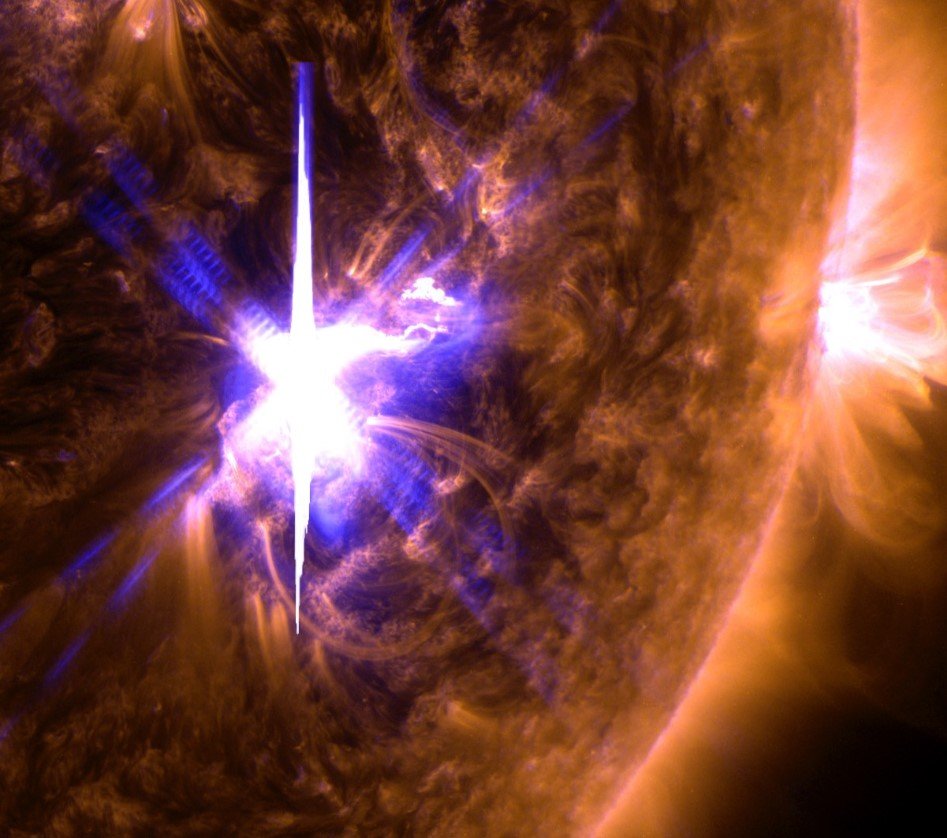A massive solar flare is on its way to Earth, and experts are sounding the alarm. The National Oceanic and Atmospheric Administration (NOAA) has issued warnings about possible widespread radio blackouts expected this week. This could affect everything from your morning news to critical emergency communications.
Solar flares, those intense bursts of electromagnetic energy from the sun’s surface, aren’t just a spectacle to watch. They have real, tangible effects on our daily lives. When these flares reach Earth, they can disrupt high-frequency (HF) radio communications, especially on the sunlit side of our planet.
You might be wondering, “How bad could it get?” Well, NOAA is advising radio users to brace for anything from momentary signal degradation to complete blackouts in reception. Imagine trying to navigate or coordinate during an emergency and suddenly losing all your communication channels. That’s the kind of disruption we’re talking about.
What Exactly Are Solar Flares?
So, what are these solar flares all about? Essentially, they’re sudden eruptions of energy from the sun’s surface, often linked to the sun’s magnetic field. These bursts release powerful radiation that can mess with Earth’s ionosphere—the layer of our atmosphere that reflects HF radio signals back to the ground.
When these potent waves hit our atmosphere, they cause radio blackouts. This isn’t just a minor inconvenience. Aviation and maritime operations rely heavily on uninterrupted HF communications. Emergency response teams depend on clear signals to coordinate effectively during crises.

- Key Effects of Solar Flares:
- Disruption of HF radio signals
- Impact on navigation systems
- Interference with emergency communications
Preparing for the Blackout: What You Need to Know
With the solar flare approaching, it’s time to get prepared. Here’s a quick rundown of what to expect and how to stay safe:
| Impact Area | Potential Disruption | Recommended Action |
|---|---|---|
| Aviation | Navigation system interference | Use backup communication systems |
| Maritime Operations | HF radio signal loss | Rely on satellite communication |
| Emergency Services | Emergency radio blackout | Implement alternative communication plans |
Actually, it’s crucial for those in affected sectors to review their contingency plans. You know, better safe than sorry!
The Bigger Picture: Long-Term Implications
This solar event isn’t just a one-off. Understanding its implications can help us better prepare for future occurrences. Solar flares are part of the sun’s natural activity cycle, but their intensity and frequency can vary.
Experts are keeping a close eye on these developments. The data collected from such events can improve our predictive models, making it easier to anticipate and mitigate the effects of future solar storms. So, while this flare might cause some headaches, it’s also an opportunity to enhance our resilience against cosmic weather.
